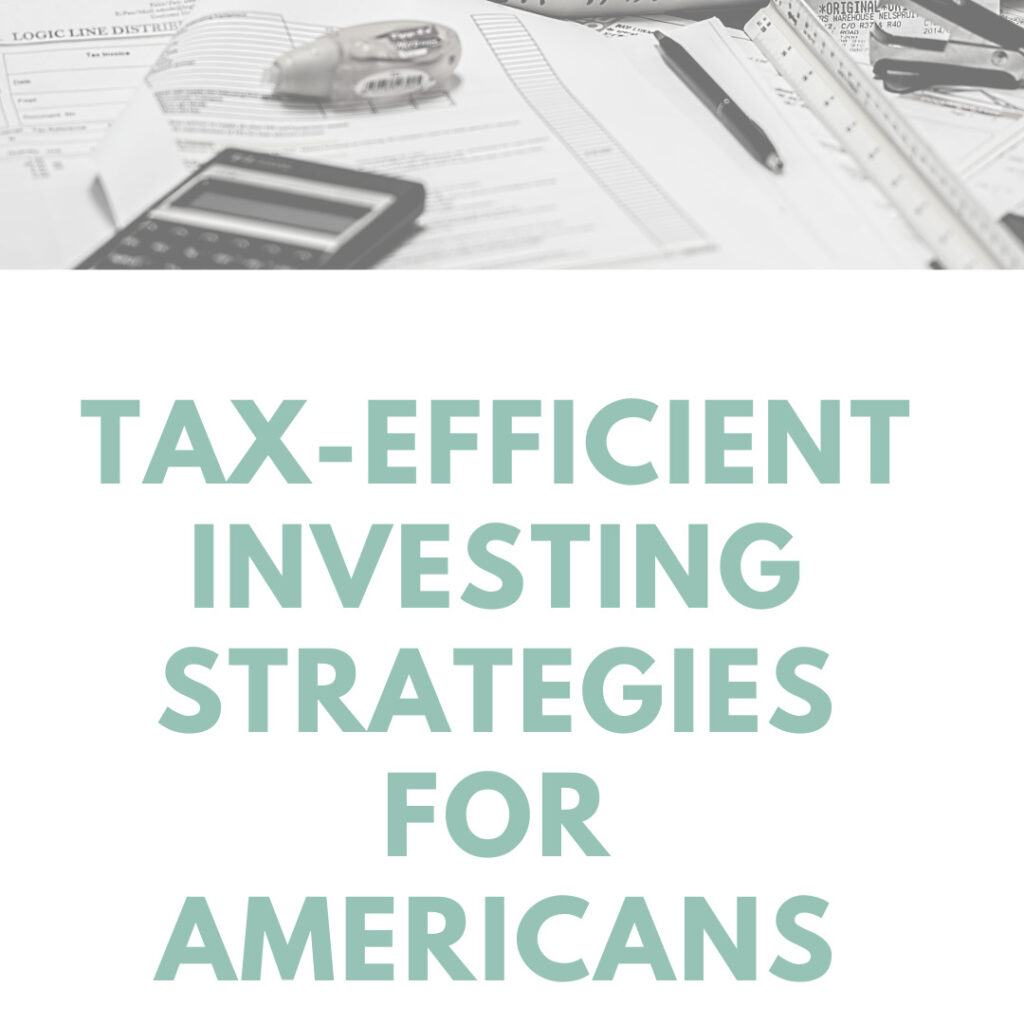Tax-efficient investing strategies for Americans play a pivotal role in financial planning, safeguarding your wealth while helping you reach your monetary goals. Taxes can take a substantial bite out of your returns, making it essential to explore strategies that minimize tax implications. In this article, we will delve into the realm of tax-efficient investing for Americans and address key questions regarding taxes and investments.
1. Tax-Efficient Investment Types for Americans
When it comes to tax efficiency, certain investment options stand out as exceptionally beneficial for Americans:
a) Tax-Advantaged Accounts: Leveraging tax-advantaged accounts like Individual Retirement Accounts (IRAs) and 401(k)s is a cornerstone of tax-efficient investing. Contributions to these accounts are tax-deductible or made with pre-tax income, and they accumulate earnings on a tax-deferred basis until withdrawal. Roth IRAs offer tax-free withdrawals under specific conditions.
b) Index Funds and ETFs: Passive investment instruments like index funds and exchange-traded funds (ETFs) are renowned for their tax efficiency. They typically generate fewer capital gains due to lower turnover, resulting in diminished tax obligations.
c) Municipal Bonds: Investing in municipal bonds can be remarkably tax-efficient since the interest income from these bonds is often exempt from federal and, in some cases, state taxes.
d) Tax-Managed Funds: Certain mutual funds adopt tax-efficient strategies, such as minimizing capital gains distributions and offsetting gains with losses. These strategies can effectively curtail your tax liability.
2. Saving Tax in the USA: Top Strategies
To save on taxes in the United States, implement the following strategies:
a) Maximize Retirement Contributions: Contribute the maximum allowable amount to your 401(k) or IRA. These contributions are often tax-deductible, effectively reducing your present taxable income.
b) Tax-Loss Harvesting: Offset capital gains by selling investments that have depreciated in value, thus realizing capital losses that can be employed to reduce your overall tax liability.
c) Long-Term Investing: Holding investments for more than one year qualifies you for lower long-term capital gains tax rates.
d) Leverage Tax Credits: Capitalize on tax credits, such as the Earned Income Tax Credit, Child Tax Credit, or education credits, to pare down your tax bill.
e) Opt for Tax-Efficient Investments: Consider investing in tax-efficient options like index funds, ETFs, or municipal bonds, as previously discussed.
f) Seek Professional Guidance: Engage a tax advisor or financial planner to tailor specific strategies to your unique financial situation and objectives.
3. Taxation of Foreign Investments in the USA
The United States taxes foreign investments differently depending on the type of income generated:
a) Capital Gains: Generally, capital gains from foreign investments are subject to the same tax rates as domestic investments. However, you may be eligible for foreign tax credits or deductions if you’ve paid foreign taxes on those gains.
b) Dividends: Dividends from foreign investments are also subject to U.S. taxation. Foreign tax credits may be available to offset double taxation if the foreign country taxes the dividends.
c) Passive Foreign Investment Companies (PFICs): Investing in PFICs involves complex tax rules. Income from PFICs is typically taxed at higher rates and may entail additional reporting requirements.
d) Foreign Tax Credit: The U.S. provides a Foreign Tax Credit to mitigate taxes paid to foreign countries. This credit serves to prevent double taxation but comes with specific rules and limitations.
Understanding the tax implications of your foreign investments is vital. Consulting with a tax professional ensures compliance with U.S. tax laws and aids in minimizing your tax liability.
Conclusion
Tax-efficient investing is a fundamental component of wealth preservation and financial achievement. By choosing the right investment vehicles, optimizing tax-advantaged accounts, and employing sound tax strategies, you can significantly diminish your tax burden and reach your financial goals. When venturing into foreign investments, grasping the intricacies of U.S. taxation on overseas assets is imperative to avoid tax-related surprises. Be mindful that tax laws and regulations are subject to change, so staying informed and seeking expert guidance are essential to maximize tax-efficient investment strategies for Americans

